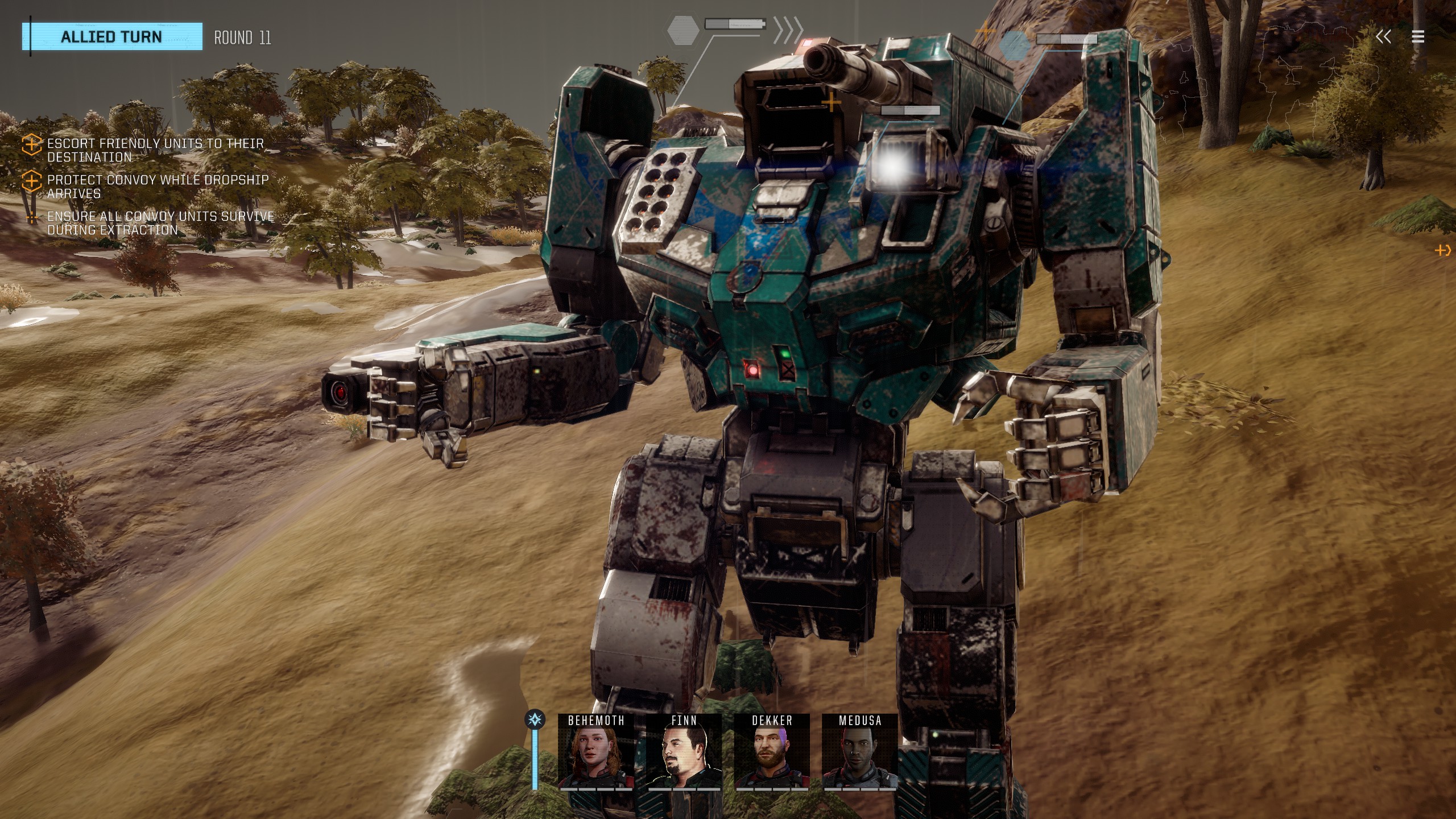Our Verdict
A deep tactical wargame with strong fundamentals supporting a broadly successful campaign system.
PC Gamer's got your back
What is it? Turn-based tactical mech combat game with an XCOM-style campaign mode.
Expect to pay $40/£35
Developer Harebrained Schemes
Publisher Paradox Interactive
Reviewed on Intel Core i7-6700K @ 4.00 GHz, 16Gb RAM, Nvidia GeForce GTX 980
Multiplayer Online, up to 2 players
Link Official site
If, as Sid Meier likes to say, good strategy game design boils down to providing a series of interesting decisions, then what comes next should be a series of interesting consequences. This is where BattleTech excels. Harebrained Schemes has taken the hard sci-fi tabletop game (best known to PC players as the basis of the MechWarrior series) and married it to the XCOM formula in a way that brings out the best qualities of both.
You field a lance of up to four bipedal battlemechs in open-ended, turn-based combat encounters that cover swathes of open terrain. Unlike many of its tactical peers, BattleTech doesn't use a grid—this is a far more granular wargame than most, asking you to pay attention to not just the position of each mech but also its degree of rotation, its speed, and its relationship with its environment.
Here's an example of how this might play out. Taking advantage of the initiative bonus granted to light units, your opponent activates their Jenner skirmish mech and has it sprint into a flanking position along a distant treeline. Moving a longer distance grants it several stacks of the evasion buff, and moving into trees provides cover. In response, you move your Wolverine medium mech into a firing position—but the Jenner's evasive action makes your odds of hitting pretty low.
However, this Wolverine is piloted by a mechwarrior with the Sensor Lock ability, allowing them to forgo shooting to strip two stacks of evasion from the Jenner and reveal them to your other battlemechs. This in turn allows your heavier Trebuchet mech to launch an indirect attack with its long range missiles: the barrage catches the Jenner out, dealing critical damage and blunting the flanking attempt. You've committed two mechs to dealing with what could well be a feint, however, and now your opponent has an opportunity to exploit your new position. Situations like this are the meat of BattleTech as a wargame.
The metal and the meat
The fact that this is a game about vehicles, rather than soldiers, is vital. Mechs take damage based on the precise angle of each assault, with layers of armour protecting specific components, weapons, and ammo housed in one of 11 body segments. You must also consider the heat generated by your weapons, each mech's ability to keep itself cool, and how this relates to your environment: an Orion standing in a river can fire indefinitely, while an Orion standing on an exposed hilltop on a moon with no protective atmosphere will overheat very quickly. There's also stability to consider: take too many successive hits, or a critical strike to the legs, and a mech can fall with potentially devastating consequences.
All of this is driven by the dense internal logic of the BattleTech universe, which spans from the internal workings of each mech to the technology that powers interstellar travel and communication. Becoming a better commander means understanding the exact strengths and weaknesses of each of your combatants. New players will inevitably make mistakes, but with experience comes a gratifying sense of understanding and ultimately mastery. If you've played a MechWarrior or BattleTech game before—if you know your LRMs from your PPCs—then you've already got a head start. It's a testament to Harebrained Schemes' success at adapting the source material that skills developed in very different games are transferable to this one.
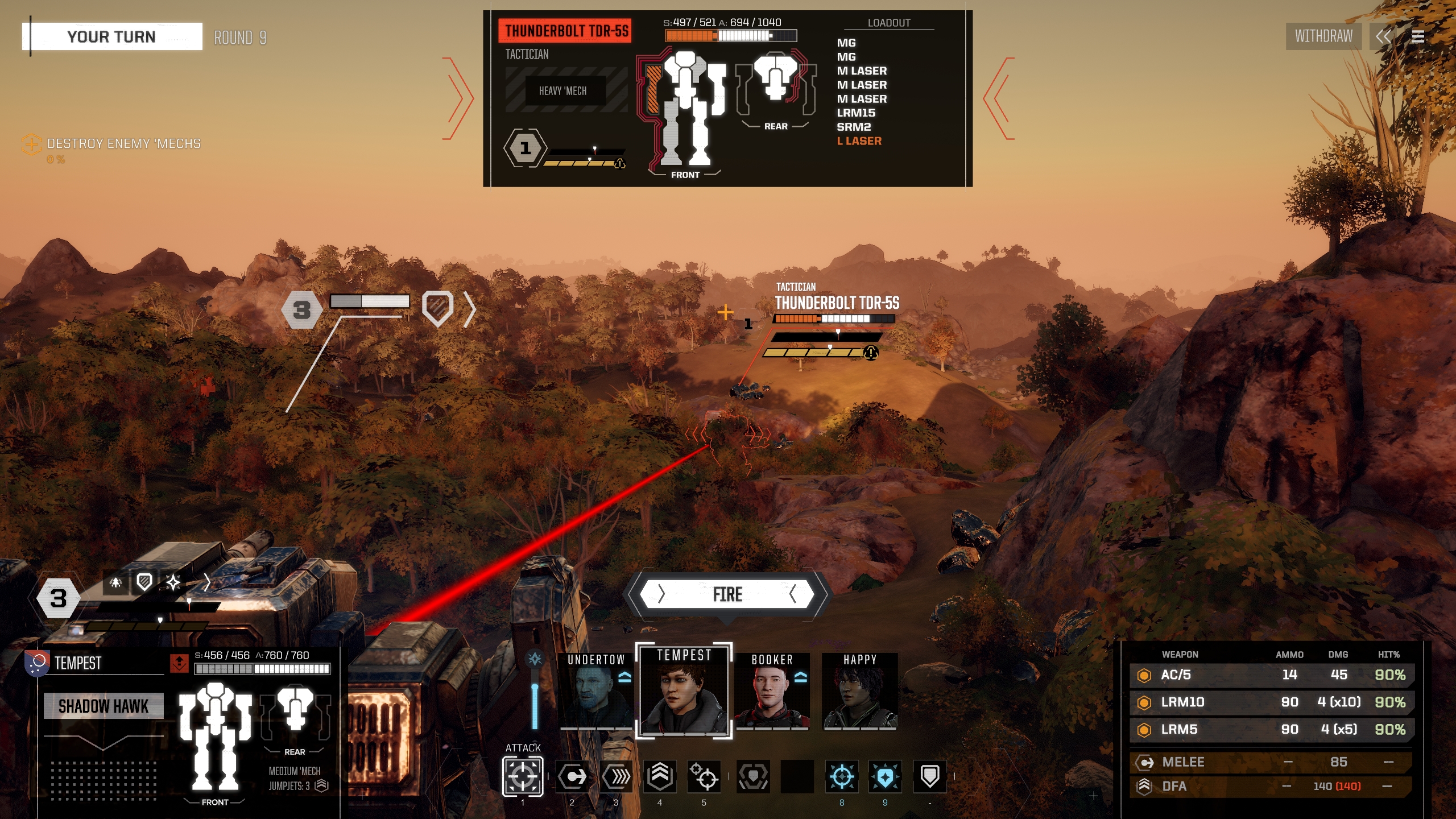
The UI has so much information to impart that it can initially seem a little overwhelming, but with time and greater fluency I came to appreciate how much it manages to express with relatively few elements. BattleTech has no undo function for a turn gone awry, so it's vital to know exactly where your mechs will end up after a move, what they'll be able to see, and who can see them—the UI achieves this. There's plenty of detail to dig into, too—while initially you might see a red signature on the long-range scanners and not know what to do about it, with more experience you'll learn to pay attention to the tonnage of the incoming foe, weigh this against your understanding of the various mech types, and plan accordingly.
It's not perfect. Cancelling out of a planned move or attack is unintuitive, and what a given mech can see and shoot at doesn't always align perfectly with the battlefield. The line-of-sight indicator might tell you that you've got an unobstructed shot at an opponent on the other side of a big rock, and in the jankiest edge-cases this'll result in you firing accurately through level geometry. The vital thing is that the targeting indicator is always right, regardless of what your eyes might otherwise be telling you, but this aspect of the tactical game could certainly use a bit more polish.
In the singleplayer campaign, you take the role of a mercenary commander dragged into a war between great houses on the fringe of human civilisation. Your primary objective is not simply to win battles: it's to pay the bills, build up your roster of mechwarriors and battlemechs, and upgrade the ship that carries you from planet to planet. As in XCOM, this strategic layer grants additional significance to each battle you fight. When one of your pilots comes under sustained fire you must consider ejecting them, or risk losing them forever.
BattleTech is a far denser game than XCOM, however, and as such the consequences of both success and failure are more interesting. You might win a battle but lose the arms of one of your best mechs, incurring expensive and lengthy repairs—and potentially a journey to find and replace their rare SRM 6++, a special variant with slightly buffed stability damage. On the other hand you might be hopelessly outmatched in a battle, but if you can score a single objective before retreating then you'll earn a good-faith failure and partial payment. When that payment lets you keep the lights on for another month, running away can feel like a victory in a way that it rarely does in this type of game.
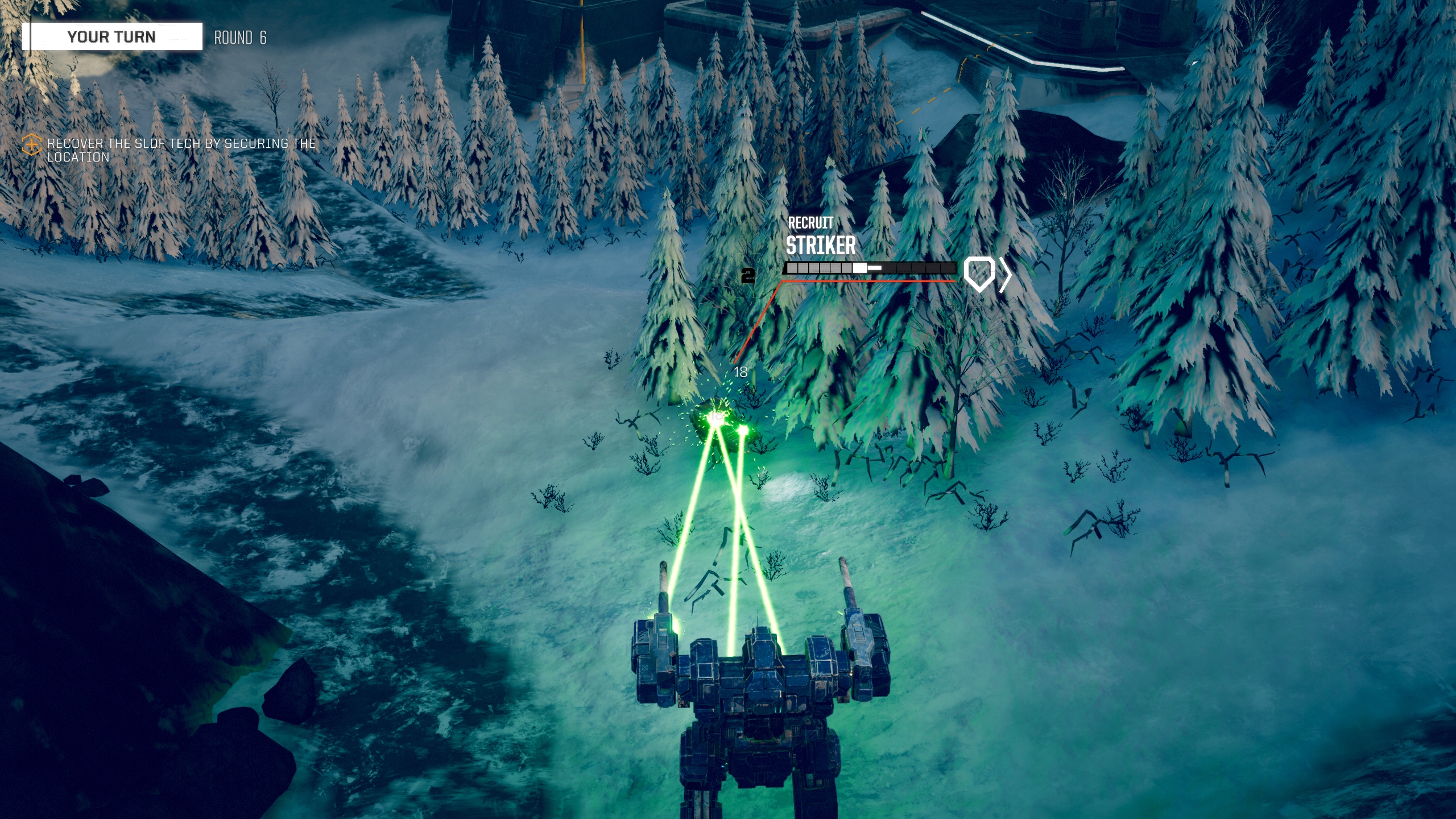
Mercenary life
There's a lengthy, story-driven series of critical path missions to guide you, and while these are ostensibly optional they often come with the best rewards and gate your access to certain game features. I enjoyed the story, but diving into it headlong feels like the right way to play in a manner that undermines the freedom that an open campaign structure purports to offer. Similarly, the campaign's light RPG elements feel underdeveloped. When you create your character you construct their background through a questionnaire, but the choices you make here don't seem to impact very much at all. Likewise, each of your pilots has a series of keywords that define who they are—criminal, soldier, noble, etc—but this never seems to have an influence on battles or the story. These feel like hooks for systems that aren't quite in place yet, and their absence is one of the things holding BattleTech back from all-round excellence.
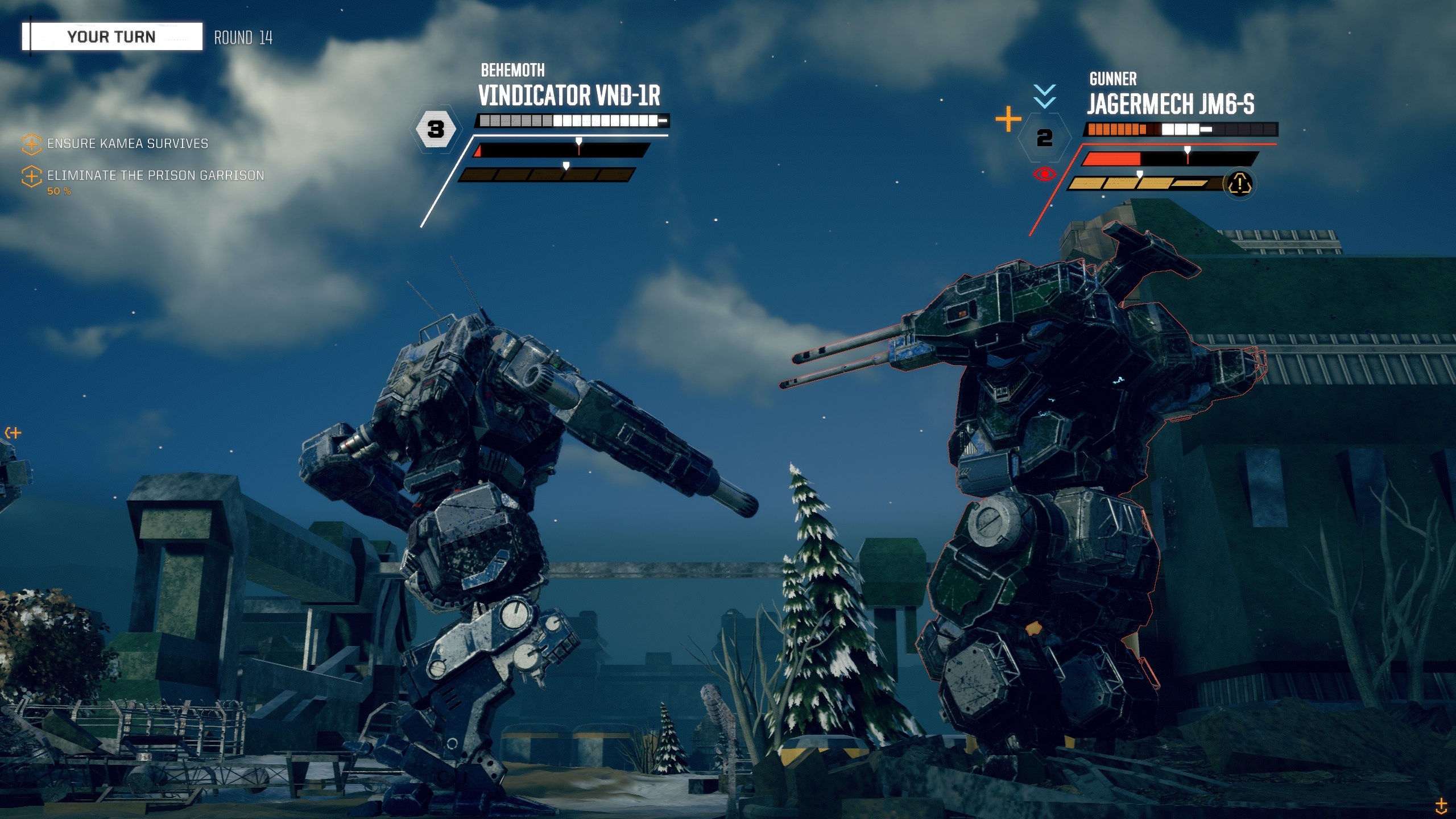
BattleTech performed consistently well in its turn-based combat mode—you'd expect it to, given that it can look pretty dated at times. However, load times on a regular HDD are surprisingly long especially when loading the game up 'cold', and I experienced sporadic slowdown in the interfaces you use to manage your ship and battlemechs in the campaign. This didn't impede my ability to make progress, but it is frustrating when it occurs.
There can be frustrating moments, too. Every time an otherwise well-positioned mech takes fire, there's a chance that something goes critically wrong. Given how risky each mission can feel, taking that one-in-a-hundred crit that takes one of your best pilots out of action for a month feels pretty bad. The tendency for the AI to focus on exploiting weakness—while smart strategically—can also result in rough situations where waves of hitherto-unseen enemy reinforcements pummel a single mech to pieces before you can do anything about it. The answer is to take as few risks as possible, which is a worthy tactical lesson but slows the game down considerably. In Skirmish mode, where combatants field matched forces, this isn't an issue.
I've got a few concerns about how difficulty varies from mission to mission, too. Noticing some strange spikes—battles that seemed wildly harder or easier than their listed difficulty rating—I tried generating the same battle twice by loading a previous save. The first time, I faced a heavy mech, two medium mechs and a heavy tank supported by a reinforcing lance of mixed heavy and medium mechs. The second time, I faced a squad of four heavy tanks supported by mixed medium and light mech reinforcements. The second version of the same mission—same objective, same payout—was considerably easier. Variance like this encourages the player to load a save rather than live with the consequences of a mission gone south, which is directly contrary to one of BattleTech's most pronounced strengths—the intricate relationship between the outcome of a battle and your overall campaign. There's no 'iron man' mode to force your hand, so it's ultimately on you to respect the negative consequences of a tough fight.
These are inconsistencies in what is otherwise an accomplished and fundamentally sound strategy game. BattleTech's success at making you feel—and want to live with—the interesting consequences of each mission is its greatest achievement, and will hopefully have an influence on other developers working in this genre. Where it fails, it fails because it doesn't fully implement all of its best ideas. Given the quality of what it accomplishes elsewhere, however, that's a good-faith sort of failure.
Note: this review is based on advanced access to an early version of BattleTech. As such, we were unable to gauge the performance of the multiplayer mode in a live environment.
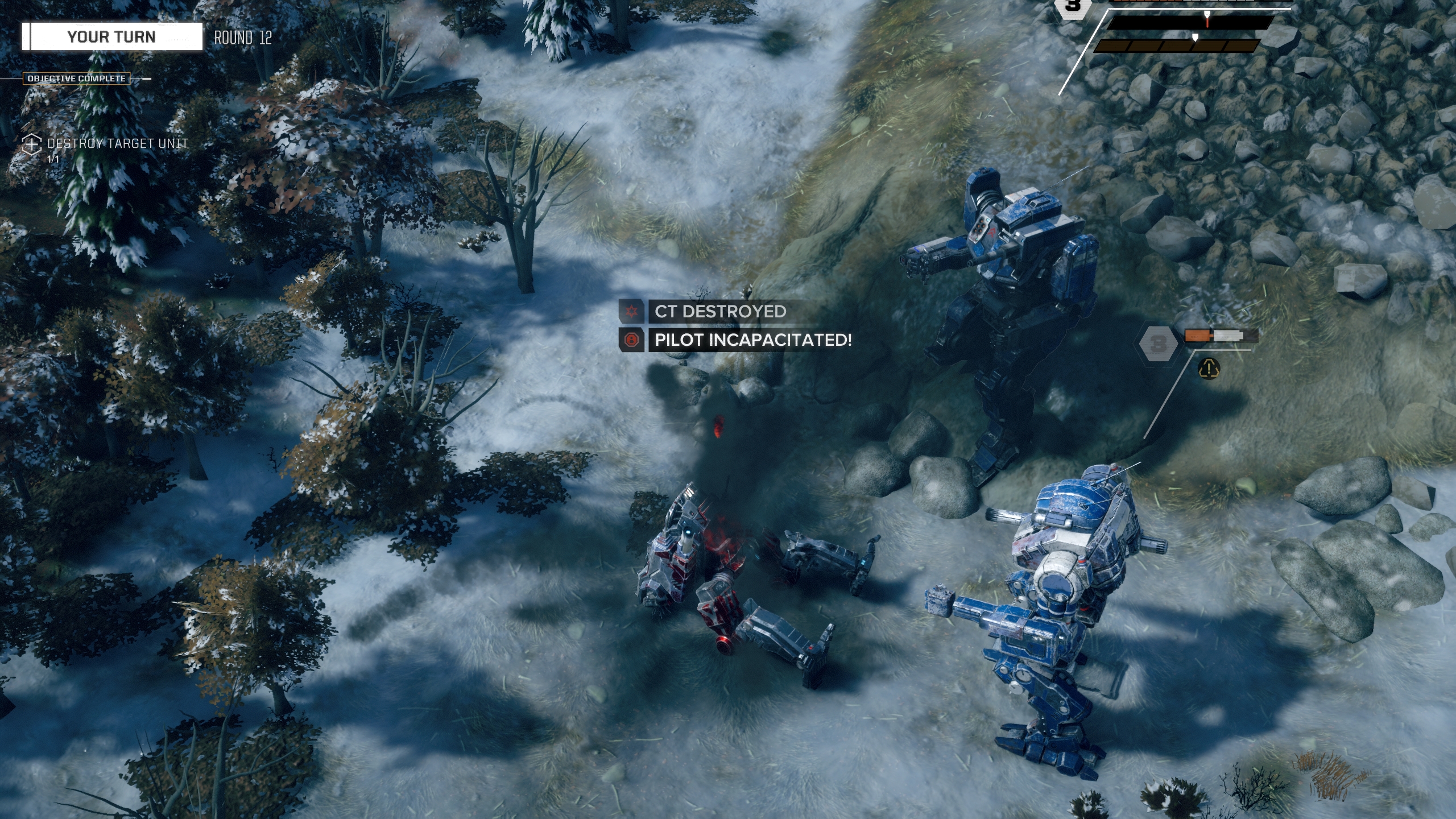
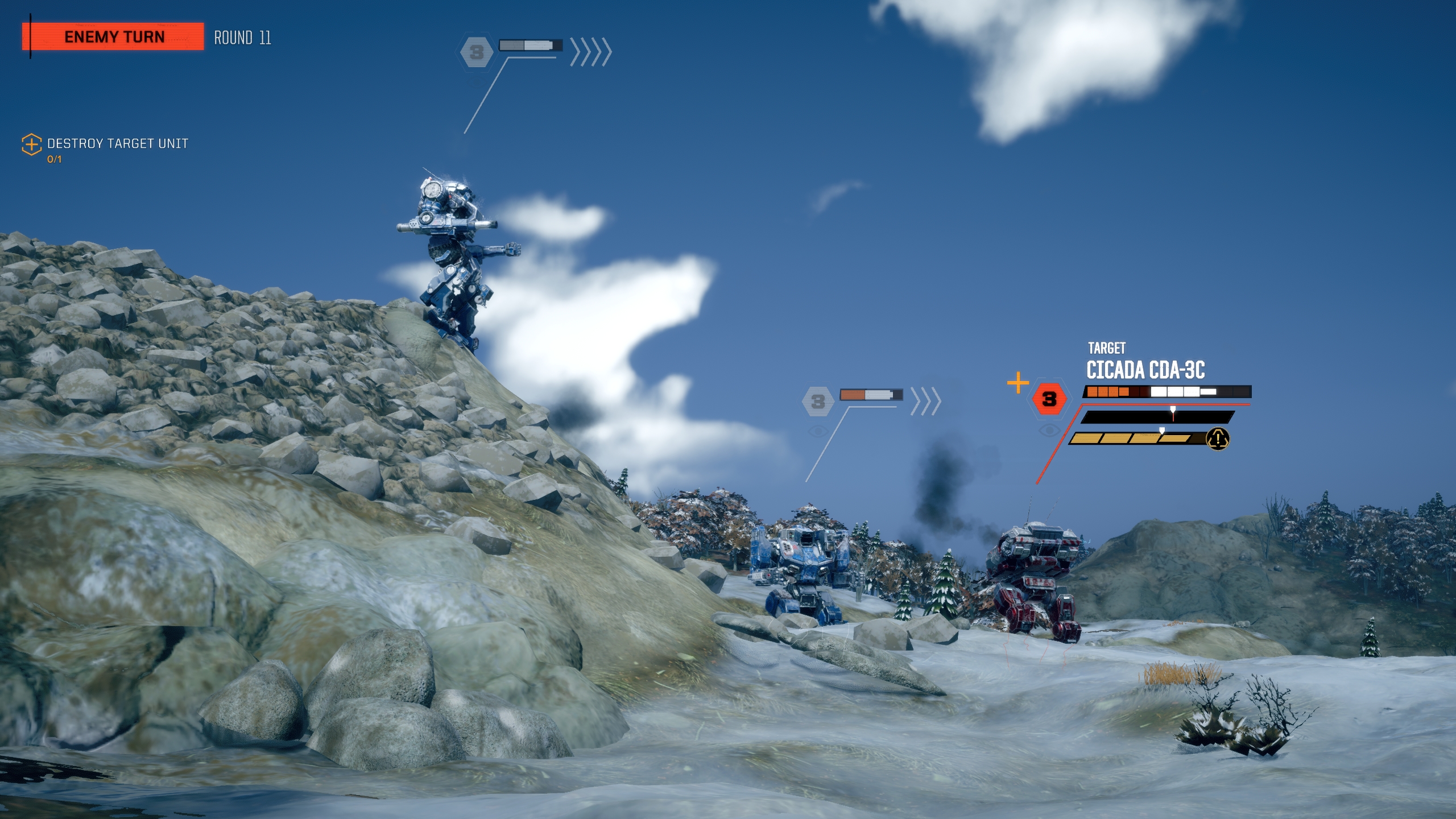
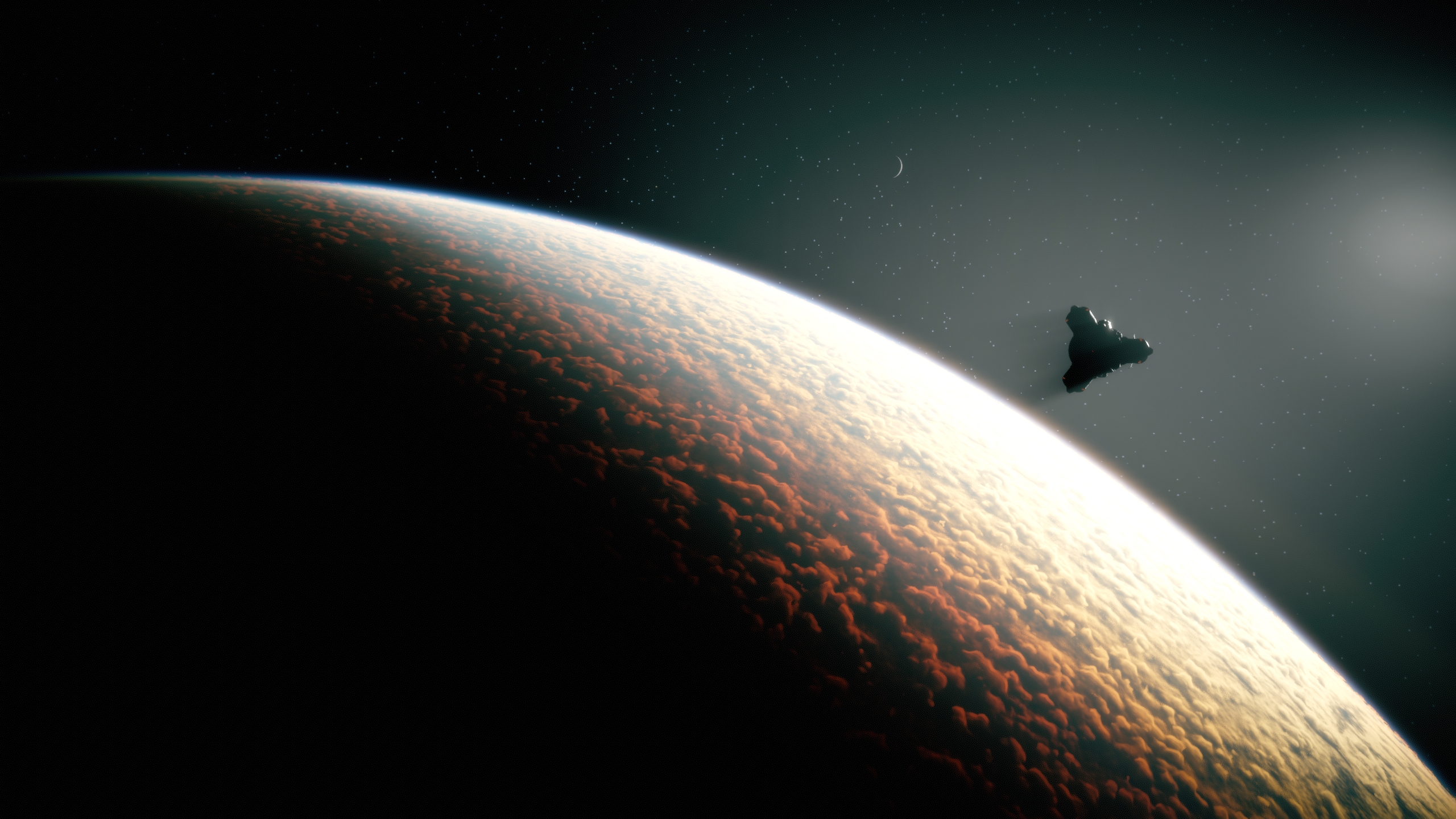
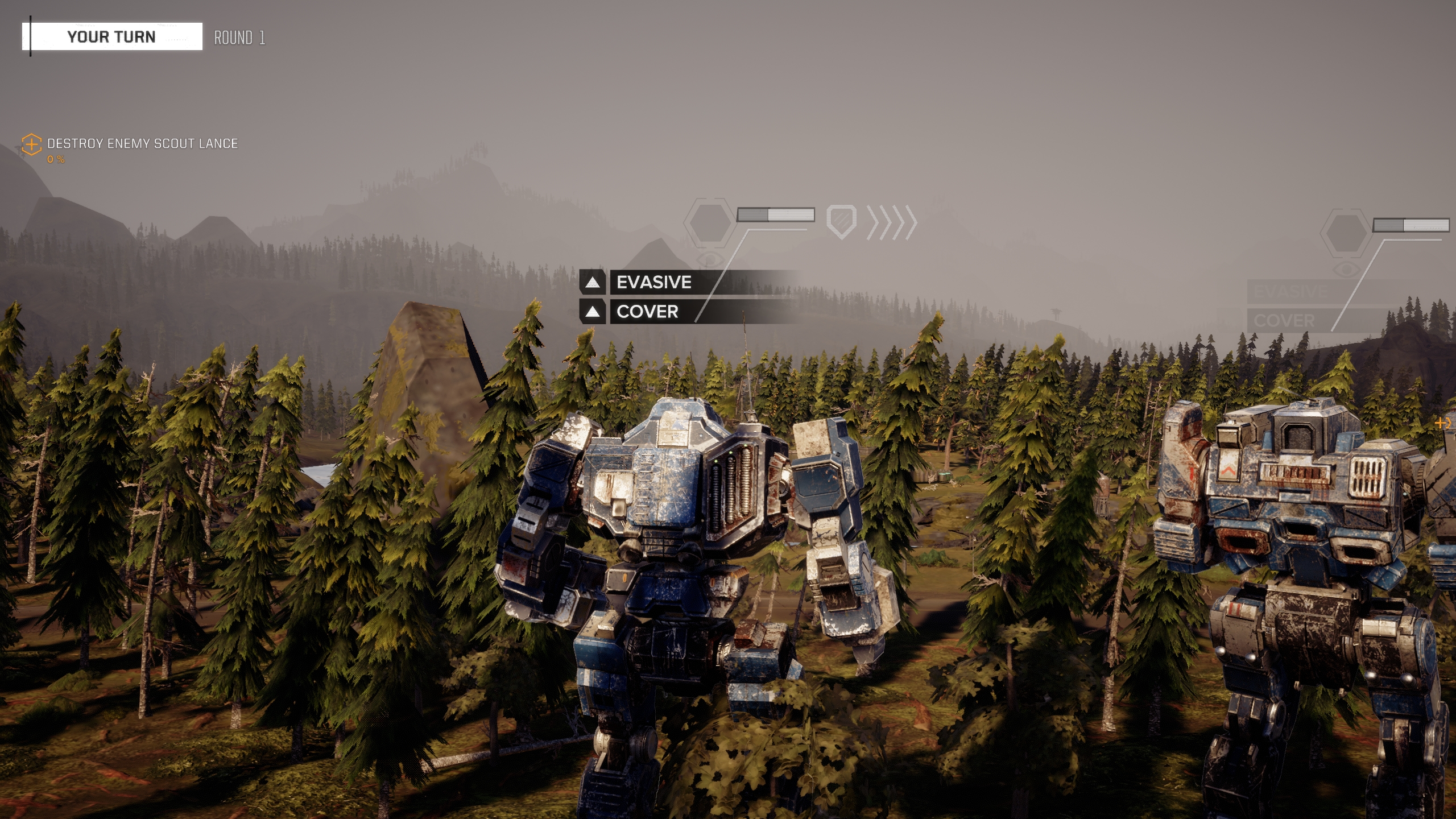
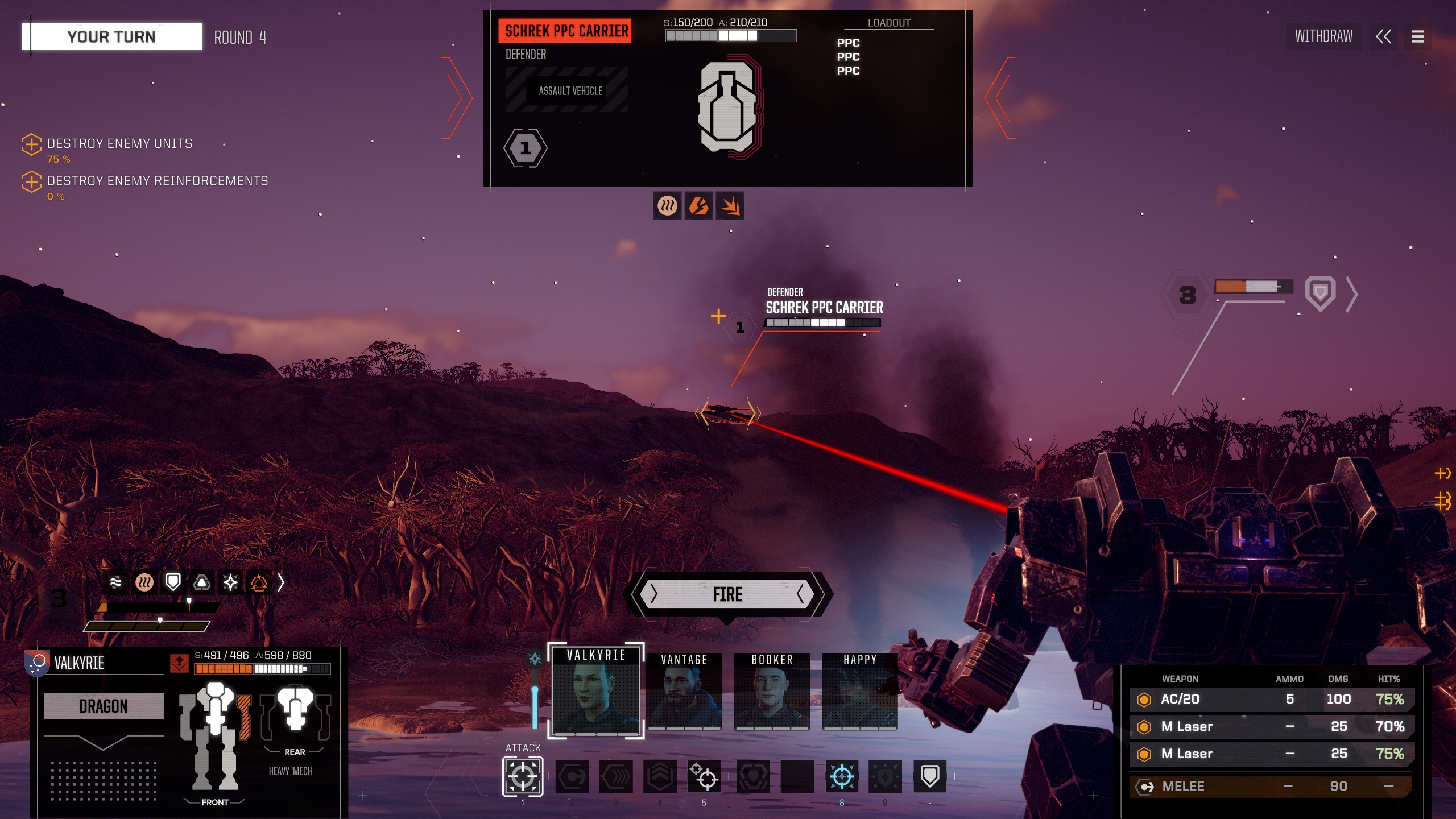
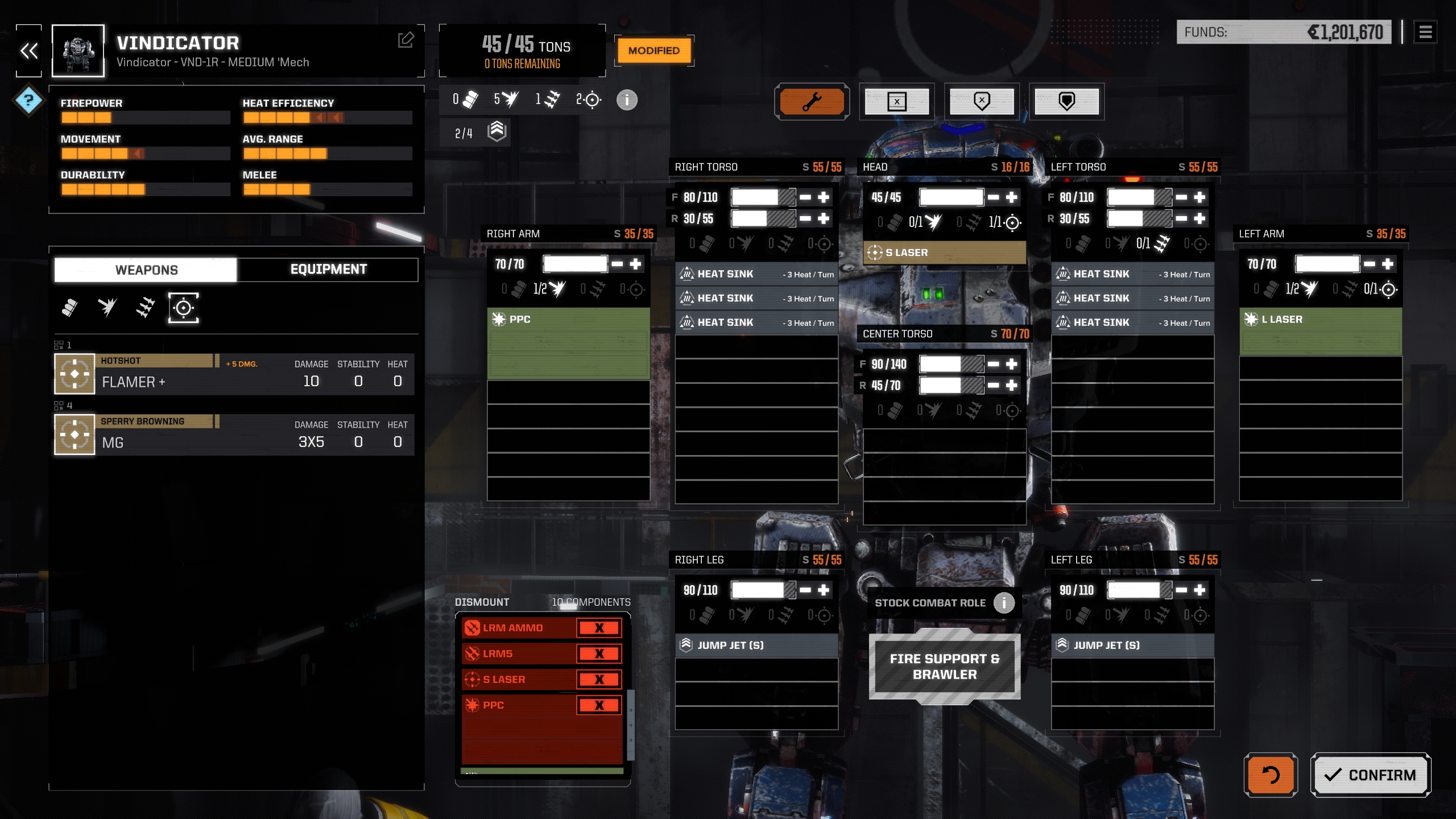
A deep tactical wargame with strong fundamentals supporting a broadly successful campaign system.
Joining in 2011, Chris made his start with PC Gamer turning beautiful trees into magazines, first as a writer and later as deputy editor. Once PCG's reluctant MMO champion , his discovery of Dota 2 in 2012 led him to much darker, stranger places. In 2015, Chris became the editor of PC Gamer Pro, overseeing our online coverage of competitive gaming and esports. He left in 2017, and can be now found making games and recording the Crate & Crowbar podcast.
